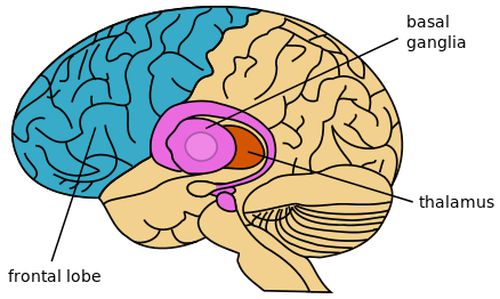Tourette’s Syndrome
Tourettes syndrome is a neurological disorder that causes unwanted movements or sound from a person. Most of the time those unwanted movements or sounds are called tics. Tics can be anything from shrugging your shoulders to blurting out unnecessary words or phrases. Tourettes typically starts in the ages 7-10 but can appear before or after those ages. If symptoms of Tourettes appears at or after the age of 18 it is not considered Tourettes.
Tics can be anything from shrugging your shoulders to blurting out unnecessary words or phrases. Tourettes typically starts in the ages 7-10 but can appear before or after those ages. If symptoms of Tourettes appears at or after the age of 18 it is not considered Tourettes.
Covid’s Impact on Tourettes
Even since covid has come about, it has been stressful for everyone. The fear of going out and having to wear a mask has had an impact on lots of people including people who have been diagnosed with Tourettes. “In a June study published in the journal Movement Disorders Clinical Practice, 48% of adults with Tourette syndrome reported their tics had worsened since the pandemic was declared in March. They cited increased stress related to health and financial concerns as well as a lack of physical activity because of confinement.” This pandemic has caused a lot of stress on people with this syndrome which in turn worsens the effects of Tourettes Syndrome. For most people, the frequency and intensity of both minor and major tics tend to fluctuate. Tics may become more frequent and more intense when a person is facing physical, emotional, or mental stress.
Other Disorders that are Connected to Tourettes
Since Tourettes is a neurological disorder, having this syndrome can cause for other mental issues as well. A lot of the times people will also experience things like ADHD, OCD or anxiety and depression. As mentioned in this article, “Psychiatric treatment becomes necessary as TS is both a neurological disorder as well as a psychiatric one, Dr Asha stresses. Along with the tics, patients might have psychiatric issues such as depression, Obsessive Compulsive
 Disorder (OCD), or Attention-Deficit/Hyperactivity Disorder (ADHD).” This happens because in a neurological disorder like Tourettes, it can block receptors that release certain hormones to keep us balanced. When these hormones aren’t released then it causes chemical imbalances which can lead to other disorders. It is believed that this disorder effects the frontal lobes and basal ganglia regions of the brain. the frontal lobe is also responsible for controlling impulse decisions which is why a lot of the times people have ADHD along with Tourettes.
Disorder (OCD), or Attention-Deficit/Hyperactivity Disorder (ADHD).” This happens because in a neurological disorder like Tourettes, it can block receptors that release certain hormones to keep us balanced. When these hormones aren’t released then it causes chemical imbalances which can lead to other disorders. It is believed that this disorder effects the frontal lobes and basal ganglia regions of the brain. the frontal lobe is also responsible for controlling impulse decisions which is why a lot of the times people have ADHD along with Tourettes.
Treatments
Although Tourettes does not have a cure, there are still some things that can help suppress the effects of the syndrome. A lot of the times medication is used to control Tourettes but, medicine does not work for everyone. You can do relaxation therapy which will help if you don’t do well under pressure, it can teach you ways to stay calm and not to aggravate tics. There is also behavioral treatments which can help people with Tourettes control their tics better. Lastly, sometimes even doing a sport can help as it allows for them to learn a controlled environment. Even thought there is no cure for Tourettes, there are still treatments that can help lessen the effects of it over time.
References
Tourette Syndrome, ceders-sinai.org; https://www.cedars-sinai.org/health-library/diseases-and-conditions/t/tourette-syndrome.html#:~:text=The%20first%20signs%20of%20Tourette,considered%20symptoms%20of%20Tourette%20syndrome.
Research finds COVID may Worsen Symptoms of Those with Tourette’s Syndrome, kold.com; https://www.kold.com/2021/01/12/research-finds-covid-may-worsen-symptoms-those-with-tourette-syndrome/
What is Tourettes Syndrome, medicalnewstoday.com; https://www.medicalnewstoday.com/articles/175009
Tourettes Syndrome by ArtistLimited on DeviantArt, deviantart.com; https://www.deviantart.com/artistlimited/art/Tourette-Syndrome-281812861
Tourettes Syndrome Facts Sheet / National Institute of Neurological Disorders and Stroke, ninds.nih.gov; https://www.ninds.nih.gov/Disorders/Patient-Caregiver-Education/Fact-Sheets/Tourette-Syndrome-Fact-Sheet
Tourette Syndrome: signs, causes, diagnosis and treatment, netdoctor.co.uk; https://www.netdoctor.co.uk/conditions/adhd/a5227/tourettes-syndrome/